
























The weekly newspaper for air cargo professionals


No. 1,244 21 August 2023




























No. 1,244 21 August 2023

EL AL AND ISRAEL WELCOMES ...
EL AL Israel Airlines announced the arrival of its 16th Boeing 787 Dreamliner, which landed in Israel on the morning of Monday 31st July after a ...
PAGE 2
AVIANCA CARGO BOOSTS ...
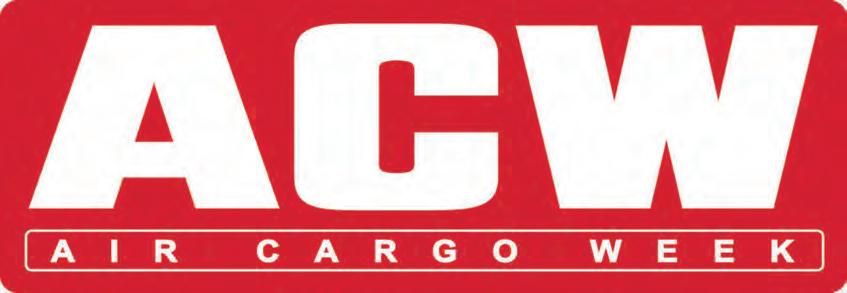
AVIANCA Cargo is reinforcing its strategy in the air cargo industry and contributing to the development of the Brazilian market through ...
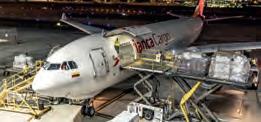
PAGE 3
Air India has unveiled a new identity and livery that captures the essence of a bold new India, marking a milestone in its transformation of the national institution into a national inspiration.
The new look reimagines the iconic Indian window shape, historically used by Air India, into a gold window frame that becomes central to the new design - symbolising a ‘Window of Possibilities’.
Air India’s new logo symbol - ‘The Vista’ - is inspired by the peak of the gold window frame, signifying limitless possibilities, progressiveness, and the airline’s bold, confident outlook for the future.
Air India’s brand-new aircraft livery and design features a palette of deep red, aubergine, and gold highlights, as well as a chakra-inspired pattern. It also boasts a striking new custom-made ‘Air India Sans’ font, marrying confidence with warmth to position Air India as premium, inclusive, and accessible.
Campbell Wilson, Air India CEO & MD, said: “Our transformative new brand reflects an ambition to make Air India a world class airline serving guests from around the globe, and that represents a new India proudly on the global stage.
“The new Air India is bold, confident, and vibrant, but also warm and deeply rooted to its rich history and traditions that make Indian hospitality a global benchmark for standards in service.”

Designed in partnership with the brand transformation company, FutureBrand, the iconic new brand identity combines Air India’s glorious past with its drive to aim for excellence and innovate for the future, creating a standout brand design for a premium global airline with an Indian heart.
People will begin to see the new logo throughout starting December 2023.
“Colours, patterns, shapes and how they come together and what they represent matter, but our actions speak so much louder. We are in the midst of a total transformation to reimagine the role of India’s flagship airline”, Wilson said.
Air India is making significant investments throughout the guest experience to elevate its service and to strengthening its position as the preferred airline for travellers flying to, from, and within India.
Air India has confirmed historic purchase agreements to acquire 470 aircraft from Airbus and Boeing at US$70 billion (based on published list prices), with deliveries of the new aircraft starting November this year.
The transformation of Air India’s fleet has already begun with the airline leasing and buying 20 widebody aircraft this year. By March 2024, 33% of the airline’s widebody fleet will be upgraded, and over the next two-and-a-half years, its entire long-haul fleet will be reborn.
Air India has launched a new website and app, offering an improved web experience with new digital tools and features.
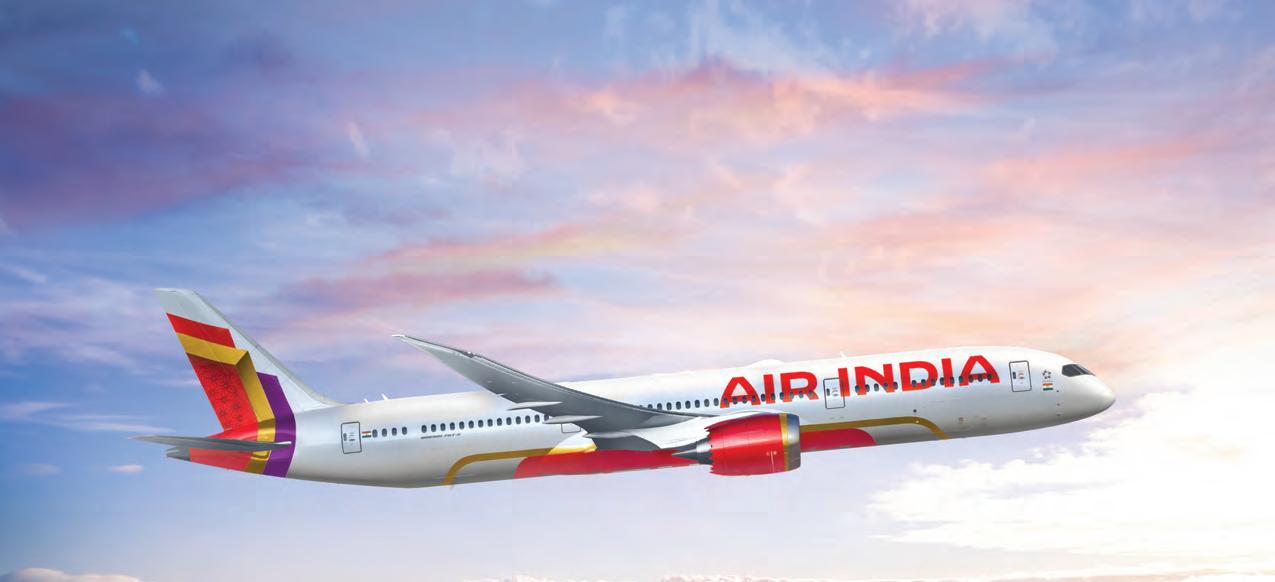
The carrier will also launch a new “open all hours, every day” customer contact centre in nine Indian and foreign languages by the end of this year.
Air India has now welcomed more than 5,000 new staff, including 3,200 Cabin Crew and nearly 1,000 Cockpit Crew, who are helping to drive the cultural transformation taking place at the heart of Air India. It is also heavily investing in building one of the world’s largest aviation training academies in India that will upskill a massive number of aviation professionals.
RAFT ACCELERATES GLOBAL ... INTELLIGENT logistics platform Raft has appointed industry veteran Kurt Corman as Regional Vice President of Sales, Americas, and Claudio ...
PAGE 4
A GLOBAL PLAYER FROM GREAT...
HAE Group, a prominent GSSA in the airfreight industry, proudly traces its roots back to the United Kingdom. Established in

PAGE 8
Page 6
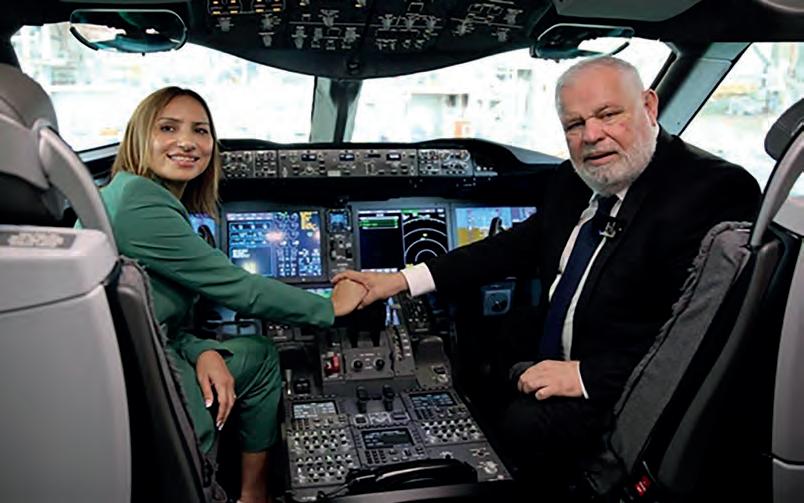
EL AL Israel Airlines announced the arrival of its 16th Boeing 787 Dreamliner, which landed in Israel on the morning of Monday 31 July after a direct flight from the Boeing factory in Seattle, WA, using Sustainable Aviation Fuel (SAF). The historic flight marks EL AL’s first use of SAF and signifies the company’s global leadership in reducing the emissions of greenhouse gases.
30% of the total fuel used in the flight from Seattle to Tel Aviv was SAF. SAF is chemically similar to traditional fossil jet fuel but is produced from sources such as carbon in the air. In June 2023, EL AL enlisted in the IATA Environmental Assessment Program (IEnvA), which assesses the commitment of the world’s leading airlines to improving their environmental and sustainability performance. EL AL’s participation in the certification programme serves as another
example of the company’s environmental commitment.
Dina Ben Tal Ganancia, CEO of EL AL Israel Airlines Ltd. said: “Welcoming a new Dreamliner jet is always an exciting event for us. The historic arrival of our first jet using SAF marks another important milestone in our strategic plan – expanding and renewing our fleet and strengthening our commitment to sustainability.”
The new Dreamliner is the fourth 787-8 in EL AL’s fleet, and part of the company’s most recent acquisition of new aircraft. The financing transaction was arranged by ABL Aviation and is the 6th JOLCO financing transaction executed by EL AL since 2018. The arrival of the newest aircraft is part of EL AL’s strategic plan to expand and renew its fleet, improve the customer experience, and focus on more efficient fuel usage.
SILK Way West Airlines, the leading cargo airline in the Caspian and Central Asian region, has expanded its US network by adding weekly flights to and from Los Angeles International Airport, one of the world’s largest cargo gateways, handling millions of tonnes of freight annually.
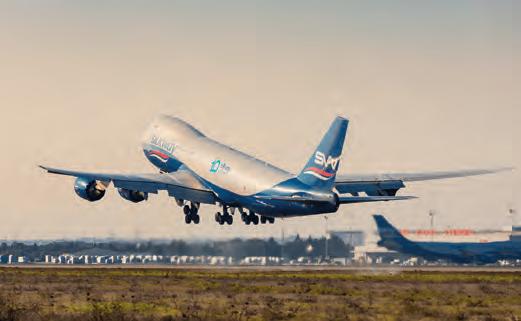
The addition of the California hub to its network reinforces the carrier’s dedication to meeting the evolving needs of its customers and supporting global trade. The airline will transport a wide range of general cargo, perishables, oversized and e-commerce goods on the route.
With this route expansion, Silk Way West Airlines enhances its presence in this key region by introducing an additional strategic destination. The addition of Los Angeles complements Silk Way West Airlines’ flights to Houston, launched in April of this year, as well as the previously established regular flights to Chicago and Dallas.
Editor: Edward Hardy
Supplement Editor: James Graham
Associate Editor: Chris Lewis
Contributors: David Craik, Stuart Flitton, Neil Madden, Donald Urquhart
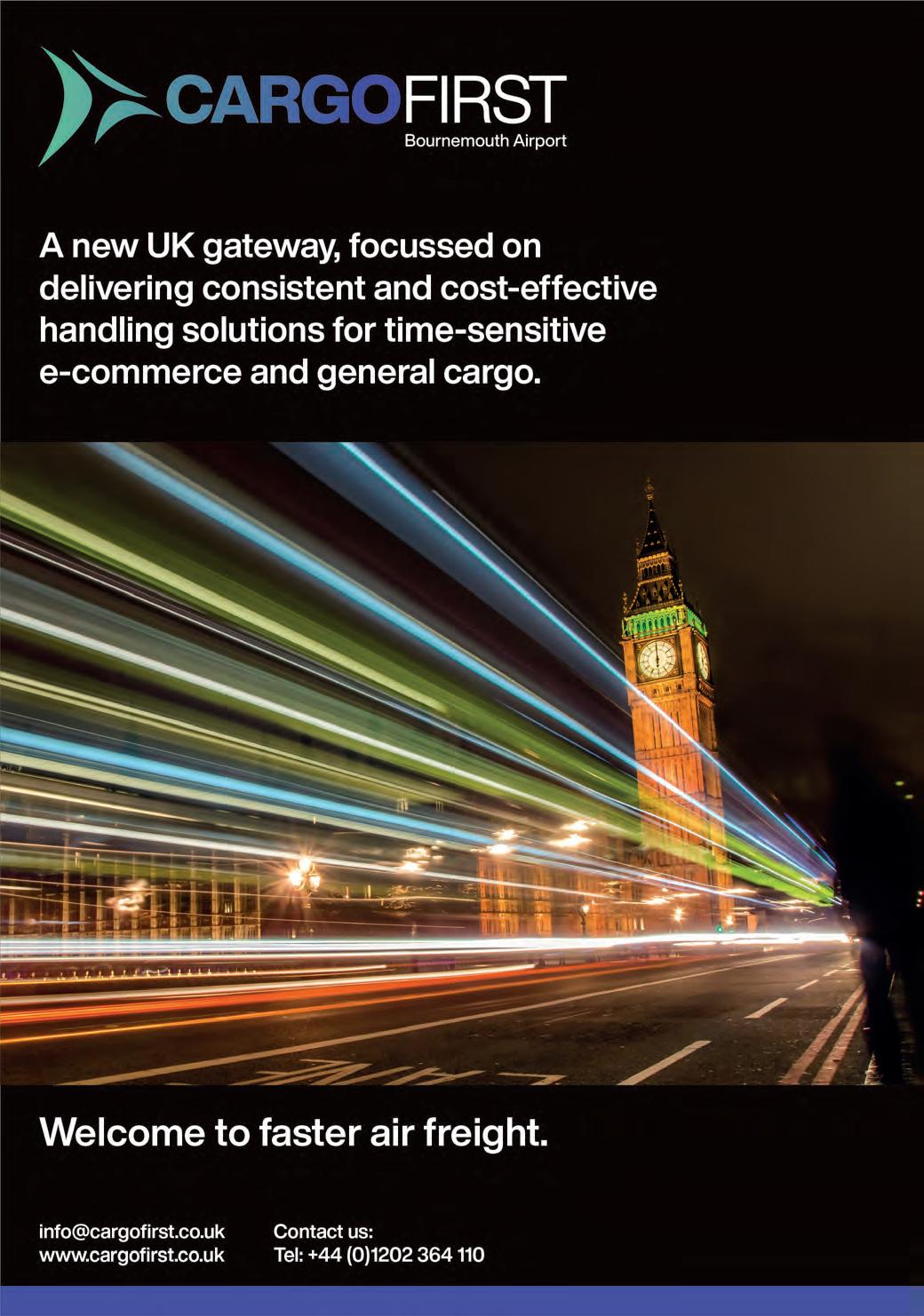
Director of Operations: Kim Smith
International Sales Director: Rosa Bellanca
International Sales Executive: Zainab Khalid
Finance Manager: Rachel Burns
Design & Production Manager: Alex Brown
Production Supervisor: Kevin Dennis
Tim
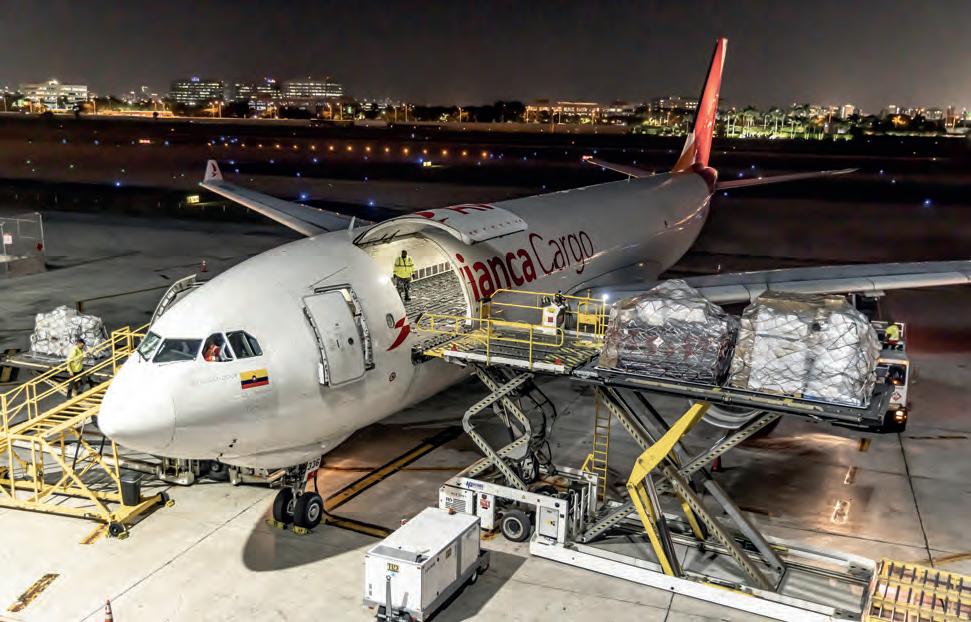
“Brazil is one of our most significant markets for import and export. At Avianca Cargo, we are in constant search of new opportunities to offer our clients. This is why, with the inauguration of our fifth destination in this country, we will continue to provide them with more alternatives, consistently and with the highest quality standards,” affirmed Diogo Elias, Vice President of Corporate Development at Avianca Cargo.
With its Miami station certified by the International Air Transport Association (IATA) under the CEIV Lithium Batteries seal and its commitment to delivering the highest quality standards in the distinctive handling and transportation of technology and lithium batteries, the cargo airline ensures that its onboard cargo arrives at its destination with the same excellent care as always.
Rhenus Logistics, a global logistics provider, is among the first to embark on this route operated by Avianca Cargo, importing high-tech goods for one of its largest clients to Vitória.
Robert Villanueva, Air Gateway Supervisor of Rhenus Logistics Americas affirmed, “through a strong collaborative effort with Avianca Cargo, we are proud to shake the market in Vitória. Transporting cargo swiftly and efficiently from Miami to VIX enables us to deliver our services to one of our biggest high-tech clients in the region. Our commitment to this specific route reflects our dedication to Brazil, one of our largest markets in support of our Miami Gateway, guaranteeing allocated space with Avianca Cargo to further strengthen and increase the air cargo landscape in the area.”
AVIANCA Cargo is reinforcing its strategy in the air cargo industry and contributing to the development of the Brazilian market through an exciting expansion. The company is inaugurating a new destination, Vitória, which joins its existing operational cities like São Paulo, Campinas, Manaus, and Curitiba.
Starting from 8th August, there will be a weekly cargo frequency connecting Miami to Vitória every Tuesday. This route, Miami (MIA) – Campinas (VCP) – Vitória (VIX), enhances Avianca Cargo’s presence in South America. In this context, the airline will increase its capacity for importing technological products and high-value goods, primarily, as well as enhancing the export of perishable goods, all in a more efficient and sustainable manner, thanks to the A330F fleet operated by the company.
Regarding exports from the South American country, Luiz A. Beraldo, Director of Perishable Air Product Brazil at CEVA Logistics stated, “in the launch of this route, alongside CEVA Logistics, Avianca Cargo will export perishable products such as fruits and fish from Vitória to the United States and Europe. This new operation signifies a substantial reduction in transit time as there will no longer be a need for a land connection to Rio de Janeiro or São Paulo.”
From his perspective, Ricardo Gesse, CEO of Zurich Airport Brazil expressed, “the arrival of Avianca Cargo into Vitória Airport further underscores the immense potential of Espírito Santo within the logistics sector. This new operation brings us great satisfaction and undoubtedly aids the city’s advancement, aligning with our company’s mission.”
Building upon the company’s strengthening strategy, Avianca Cargo will persist in expanding its presence in Brazil, with forthcoming announcements.
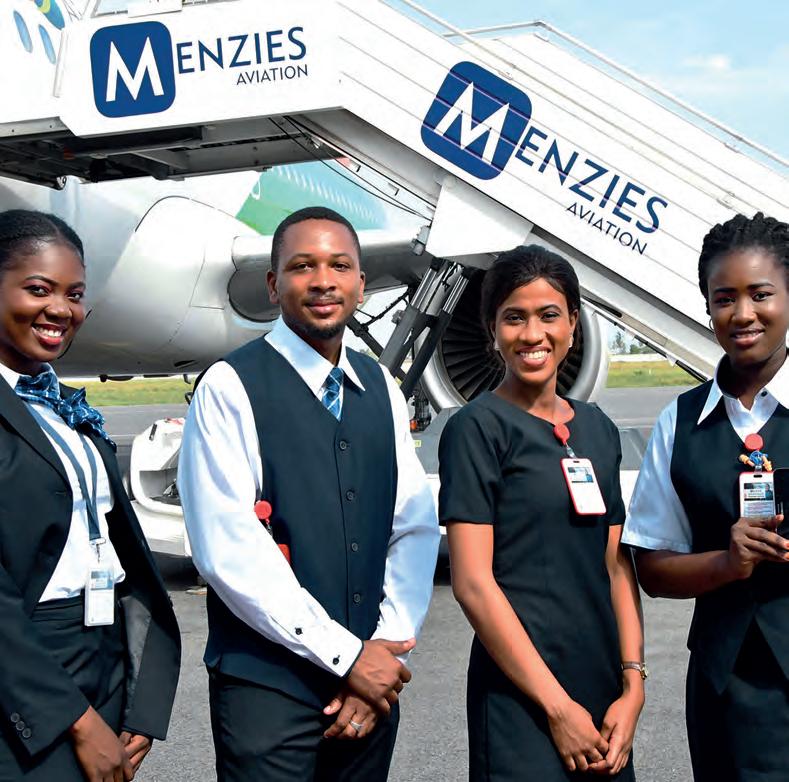
MENZIES Aviation is marking a year since it joined forces with National Aviation Services (NAS) to become the world’s largest aviation services company.
The company, which was acquired by Agility on 4 August 2022, has enjoyed accelerated growth over the past 12 months, successfully entering six new countries and growing its workforce to 40,000 employees – the highest in the company’s 190-year history.
With a focus on accelerating growth, Menzies has created a solid platform for expansion especially in emerging aviation markets. Notable successes were seen in all four regions around the world.
In the Americas, Menzies successfully expanded its footprint to Jamaica and Panama. It grew operations in Mexico from 31 to 37 airports and obtained new licenses for operations in Canada, Costa Rica, and Chile. It welcomed new customers through multiple contract wins in Philadelphia, Atlanta, and Texas taking it to 55 airports in the US – and more than 120 in total. It also achieved the largest net sales wins in its history, and won a series of large contracts with key global airline customers, making 2022 its best year yet in the Americas.
In Europe, significant growth was achieved with acquisitions and new partnerships in Montenegro, Serbia, Bulgaria and Italy. It also took a decisive step towards the acquisition of Portugal’s largest aviation services and ground handling company, which is set to complete this year.
In the Oceania and South East Asia region, a new partnership at Kuala Lumpur International Airport (KUL) saw the company establish its first location in Malaysia, complementing its existing operations in Indonesia, China-Macau and Thailand. The company also secured its first engineering contract in Australia, where it has diversified into more narrow-body, high-volume ground handling.
In the Middle East, Africa and Asia, the company secured a new five-year license at nine airports in South Africa, where it also won a game-changing air cargo contract at three airports. In India, it entered a 15-year partnership with Bangalore International Airport Limited (BIAL) to expand international and domestic cargo facilities at Kempegowda International Airport Bengaluru.
In the same period, Menzies has grown its air cargo footprint from 69 locations to 75 locations. Air Menzies International, its freight forwarding business, also expanded its global network with new branches in Frankfurt, Germany; Lahore and Karachi in Pakistan; and Toronto, Canada.
The company has invested in technology to enhance operations with sustainability in mind. It extended its partnership with i6, a leader in digital fuel management technology to four additional airports in the UK and has selected Wipro Limited, a leading technology services and consulting company, to transform its air cargo management system.
With its sights firmly set on growing the business responsibly and sustainably, Menzies Aviation set a new net-zero commitment, aligned to the Science Based Targets initiative, for scope 1, 2, and 3 CO2e emissions across the company by 2045. The commitments, which were published in Menzies’ 2022
Annual Review & Sustainability Report, reflect the company’s refreshed sustainability targets across safety, people, environment, ethical, community and governance pillars following the launch of its ‘All In’ plan for a fair and sustainable future in 2021.
Philipp Joeinig, CEO, Menzies Aviation, said: “We are extremely proud to reflect on the remarkable achievements and phenomenal growth we have experienced in the year since we joined forces with National Aviation Services (NAS).”
Hassan El-Houry, Chairman, Menzies Aviation, said: “We will continue to lead the industry by serving our airline and airport partners with the best quality, safety, and security systems.”
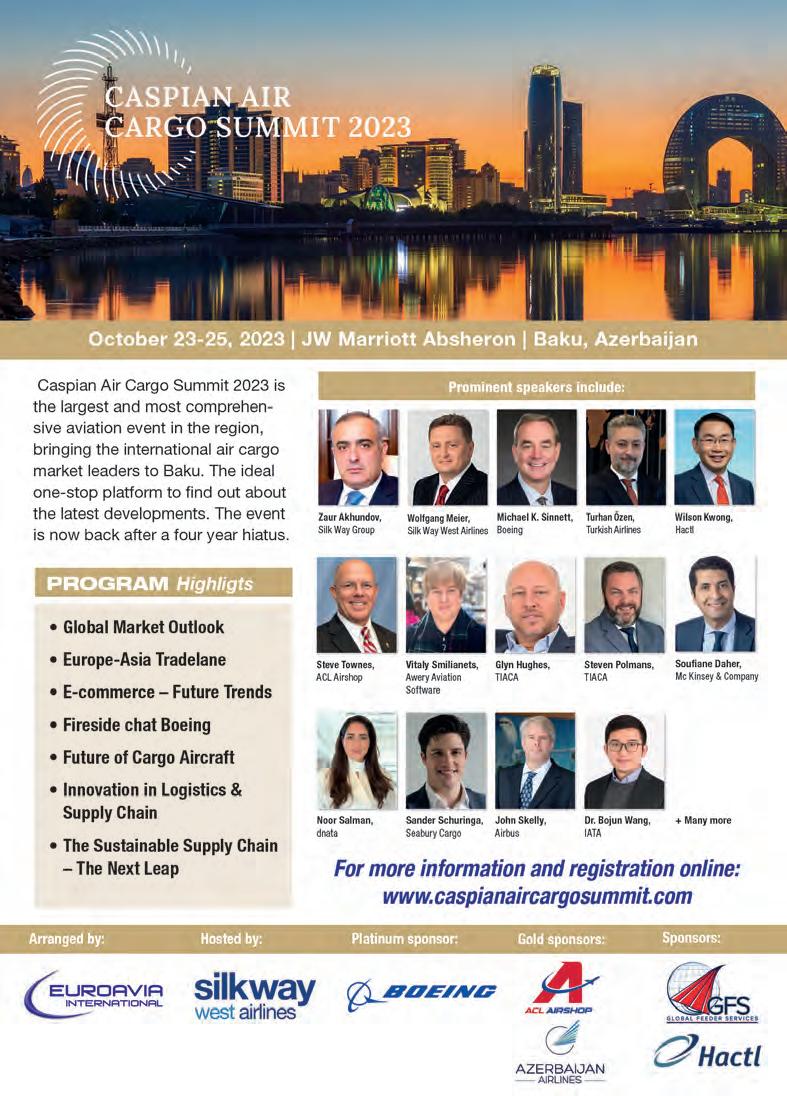
INTELLIGENT logistics platform Raft has appointed industry veteran Kurt Corman as Regional Vice President of Sales, Americas, and Claudio Fiaoni as Regional Vice President of Sales, EMEA, to support Raft’s accelerating global growth.
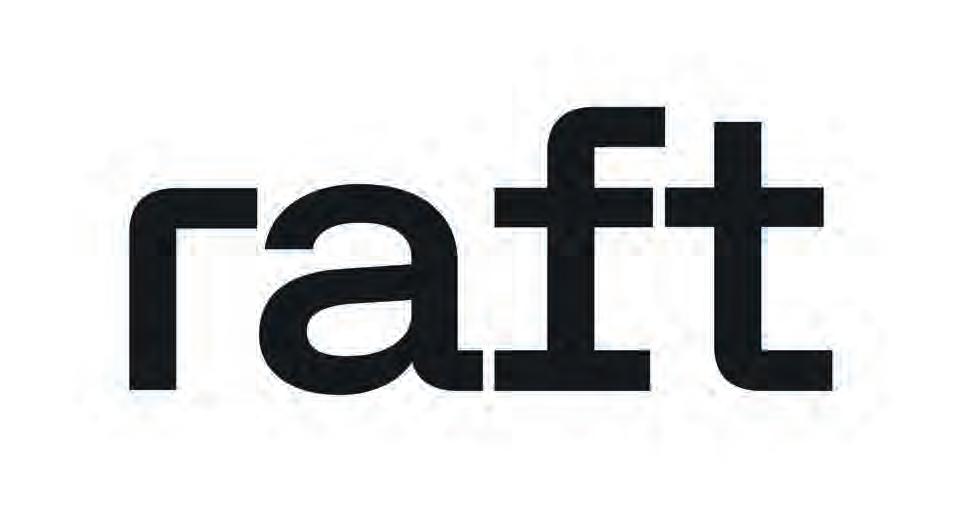
“Raft is expanding rapidly and the appointments of Kurt and Claudio ensure we have the best expertise at the helm of our sales team to support our growth objectives,” said Mark Ketcham, Senior Vice President, Sales, Raft.
“They have a clear understanding of the industry and our users’ pain points, enabling our team to deliver high-value outcomes for our clients.”
Corman, an established business leader with over 25 years’ experience in logistics and technology, was previously in sales and leadership roles with technology platforms and companies such as Fourkites, Chain.io, and BDP International.
Fiaoni started with Raft as Global Sales Director in 2022 and has over 25 years of software and commercial experience in senior roles across the logistics industry, at companies such as Oracle, 3Gtms, and E2open. Raft currently has offices across the UK, Europe, India, and the US, and is in the process of expanding its presence in the Asia-Pacific region.

EVIATION Aircraft, a manufacturer of allelectric aircraft, has announced that it has appointed TLG Aerospace, a Seattle-based aerospace engineering company, for the design of the production configuration of the Alice commuter aircraft.
Recently named one of TIME Magazine’s “100 Most Influential Companies 2023”, Eviation pioneered the nine-passenger Alice – the only flight-proven all-electric commuter aircraft of its size. Built from a clean-sheet design integrating magniX’s industry-leading electric propulsion system, Alice produces zero carbon emissions and features lower operating costs per flight hour than light jets or high-end turboprops –thereby providing the opportunity to activate more routes, improving the convenience of air travel.
“Establishing the production configuration of the Alice aircraft is an important milestone
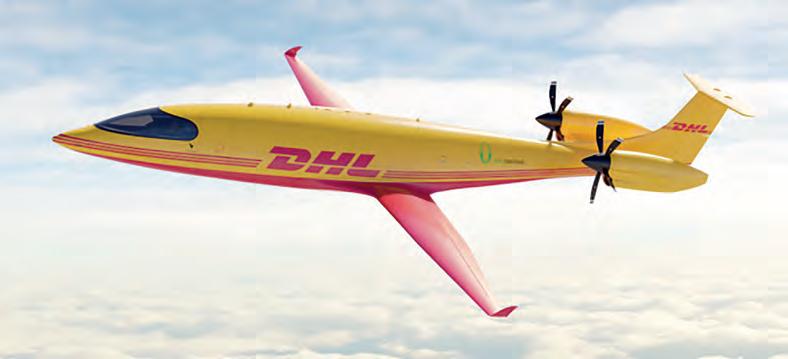
in the programme,” said Gregory Davis, CEO of Eviation. “This allows us to complete the design of the production version of the aircraft, a significant step on Alice’s path to certification. We are excited to work with the expert engineering team at TLG Aerospace to take Alice into this next stage of bringing zero carbon, cost-effective and convenient air travel to the market.”
“TLG Aerospace is thrilled to be joining this significant chapter in the development of the Alice aircraft,” said Steve Muenzberg, CEO of TLG Aerospace. “Alice is an innovative, beautifully designed aircraft and a vital solution to reduce the aviation industry’s carbon emissions. At TLG Aerospace we are committed to supporting the aviation industry’s transition to sustainability, and working with Eviation’s Alice is a tremendous opportunity to contribute to this critical initiative.”


In an increasingly interconnected world, efficient cargo delivery is the linchpin of global trade. The airfreight forwarding business is no place for the faint-hearted. As an airfreight forwarder, you understand the stakes. Every cargo delivery must be swift, secure, and smooth. That’s where Cargonet, your dedicated neutral airfreight wholesaler, comes in.
For over a decade, Cargonet has served as a crucial link in the logistics chain, connecting airfreight forwarders with the resources they need to succeed. Our role? To ensure you, our valued customers, can meet and exceed the demands of your clients with unmatched efficiency.
This belief drives us to offer customised services that meet your specific needs and assist you in navigating any challenges you may face. A UK-based customer’s testimonial encapsulates this commitment perfectly, “Cargonet is our unwavering ally in airfreight. Their exceptional rates, wide-ranging capacity, and personalised customer service are unparalleled.”
As we help you serve your clients better, we don’t forget our responsibilities. In an industry where compliance and security are paramount, we take every measure to ensure that cargo entrusted to us is handled with the utmost care and strictly adheres to all regulations.
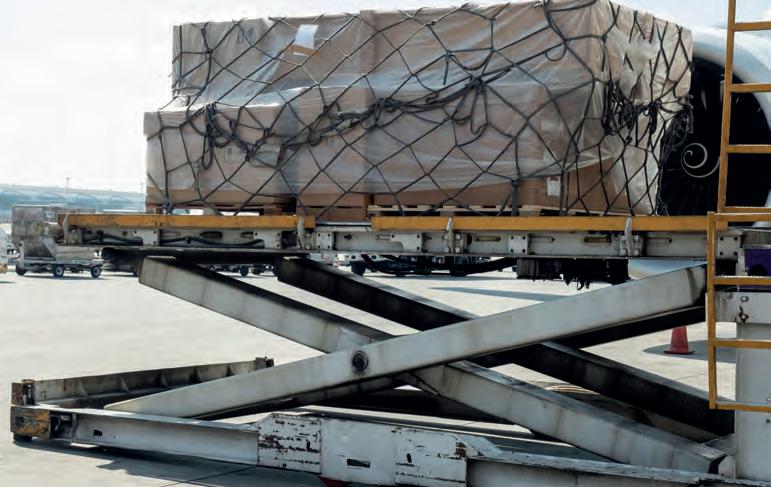
Furthermore, as a company deeply committed to the environment, we make it a priority to minimise our carbon footprint through sustainable practices. By choosing Cargonet, you’re not only choosing a service that benefits your business, but also one that contributes to a greener planet.
In essence, choosing Cargonet as your airfreight wholesaler means choosing to enhance your business’s efficiency, flexibility, and profitability. It means being able to promise your clients a service that is superior in its reliability and reach. It means gaining a competitive edge in the marketplace.
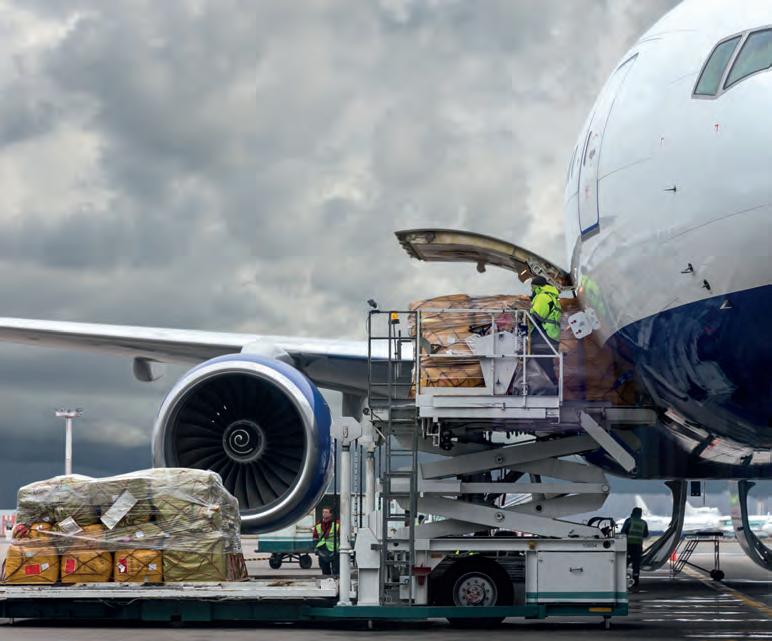
We invite you to experience the difference that Cargonet can make to your airfreight business. Explore the services we offer by visiting our website at www.cargo-net.co.uk, or reach out to us directly at sales@cargo-net.co.uk to discuss a custom solution tailored to your needs.

With Cargonet your cargo is our commitment, your success, and our shared goal.


So, what makes an airfreight wholesaler like Cargonet the ideal choice for forwarders? It all starts with our offering of competitive rates and vast capacity options. These benefits directly translate into cost savings and flexibility for your business, helping you to deliver outstanding service to your clients while protecting your bottom line.
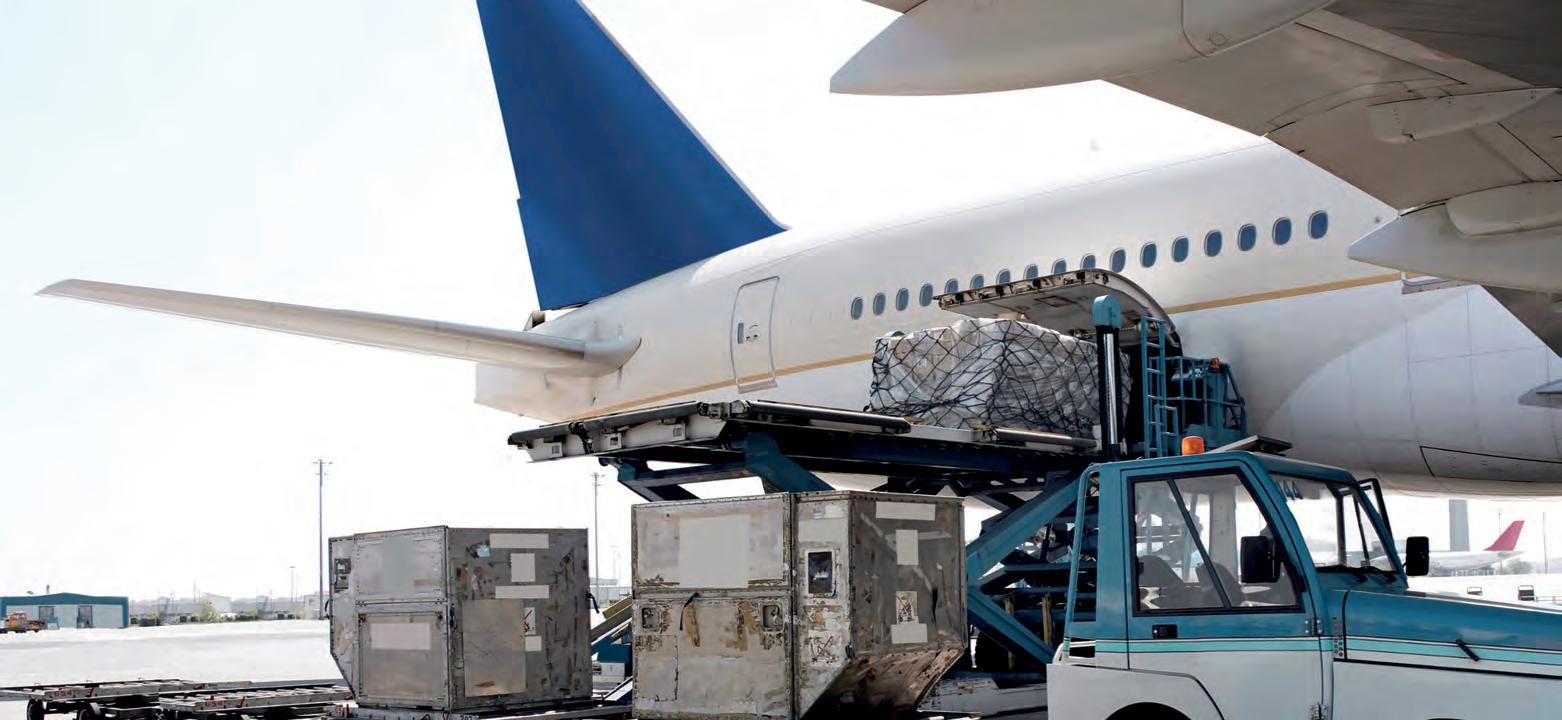
But that’s just the tip of the iceberg. Our global reach allows you to extend your services to every corner of the world. With our extensive network and strong partnerships with carriers, you’re able to guarantee your clients a truly global service.
At Cargonet, we pride ourselves on our customer-centric approach. We believe that every customer is unique and deserves personalised solutions and services.
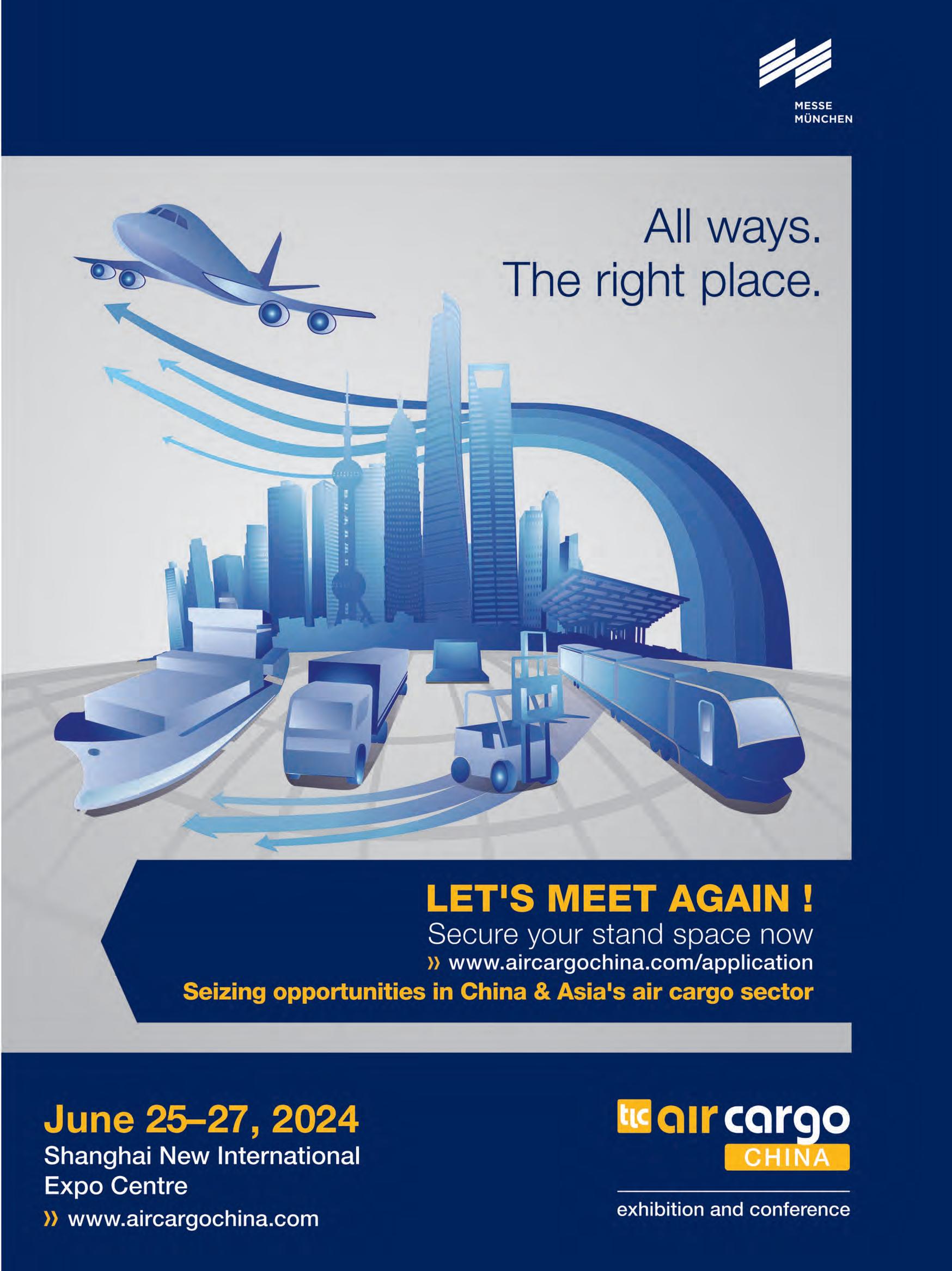

IN a landscape defined by rapid globalisation and burgeoning e-commerce, Bournemouth Airport has emerged as a growing regional cargo hub through its Cargo First handling service.
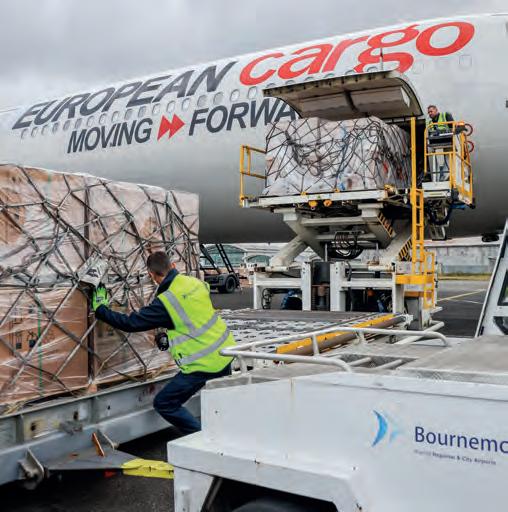
“Since our Cargo First brand launch in June last year, we’ve taken bold strides to solidify our position as a compelling alternative to congested London hub airports for time-sensitive cargo,” Bob Matharoo, Head of Cargo Development at Cargo First, stated.
Although the Cargo First brand is just a year old, the cargo operation at Bournemouth has been operational for three years, leveraging experience to catalyse industry transformation.
Over the past year, Cargo First has made significant inroads both operationally and in establishing itself as a trusted cargo service provider.
“We believe we’ve made significant progress both operationally and also in terms of being a recognised, accepted and trusted service provider,” Matharoo affirmed.
The Cargo First brand has now transcended regional boundaries, notably gaining recognition across vital global source markets, particularly in Southeast Asia.
Time sensitive Cargo First’s strategic focus on time-sensitive goods and e-commerce stems from the airport’s unique capabilities. While cargo handling processes may vary, Cargo First treats all consignments passing through its facilities as time-sensitive. The reasons behind this successful approach are manifold:.
Situated a mere 90 minutes from London, Bournemouth Airport’s geographic proximity ensures swift delivery of consignments to customer warehouses in the London area. This swiftness outpaces consignments arriving at congested hub airports.
“We’ve seen the same sort of issues as the rest of the industry (particularly in the UK), anything from dealing with additional postBrexit red tape to delays and issues in dealing with new UK Customs systems,” Matharoo explained.
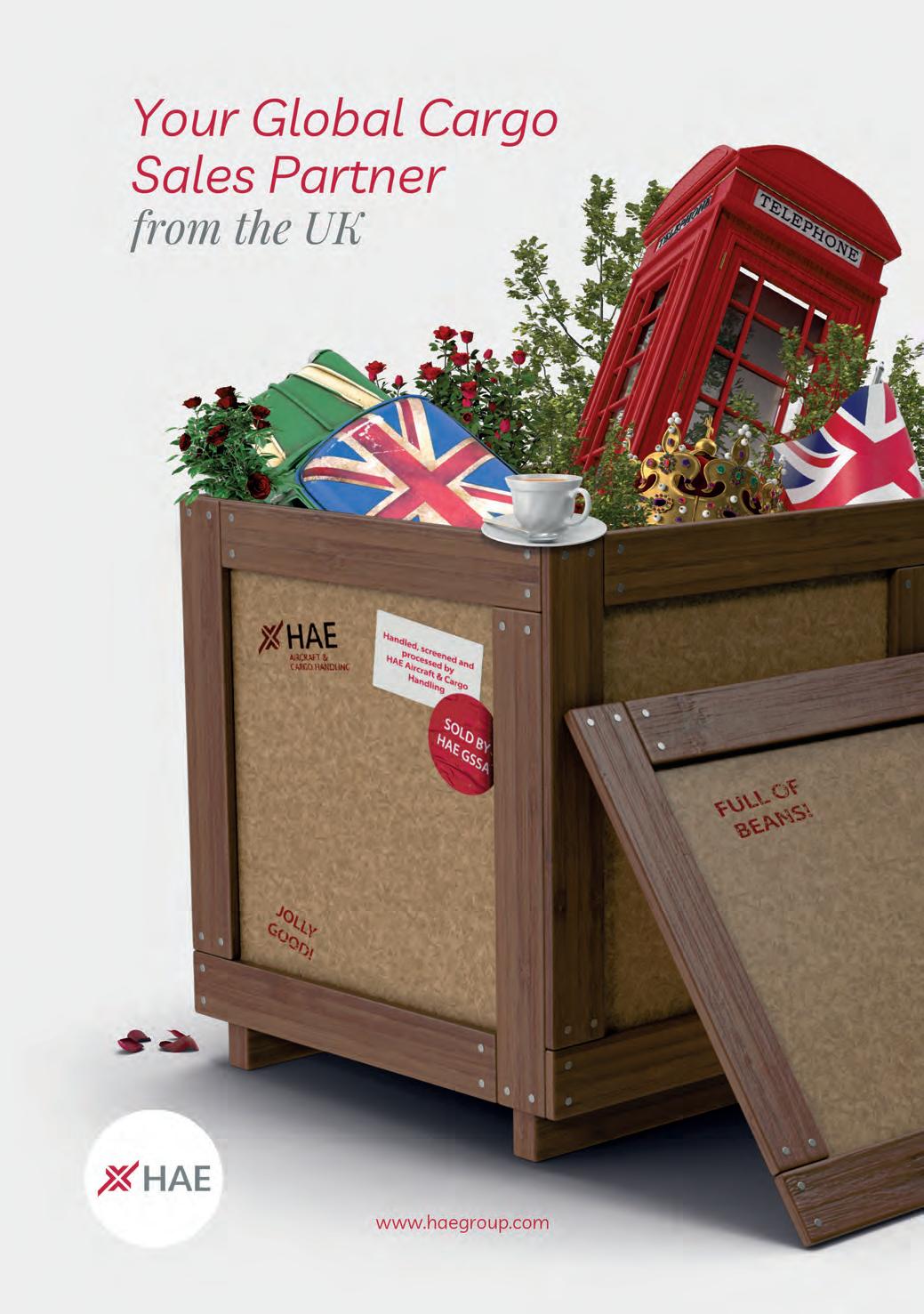
“This said, we believe our headline benefits of having an uncongested facility with a flexible labour force means that we have a greater capability than most to react to and deal with hurdles as they arise”
Cargo First embraces a holistic “One Team” approach, encompassing vital services from airfield operations to aircraft handling and cargo terminal services. This streamlined integration circumvents unnecessary time and cost associated with multiple service providers.
The airport’s ethos revolves around simplicity, speed, and costeffectiveness. This philosophy underpins every aspect of operations, ensuring swift and efficient cargo handling.
The recent establishment of an airfreight connection between Bournemouth and Chengdu Shuangliu International Airport in China showcases Cargo First’s commitment to elevating its e-commerce offerings.
This connection’s significance is profound; it expands capacity and frequency, enabling Cargo First and its clients to offer a more robust and flexible service to the market.
The choice of Chengdu Shuangliu International Airport as a partner is deeply strategic. Chengdu’s central location within China facilitates efficient road transport logistics to major manufacturing and consumer markets. Additionally, a supportive regional government underscores the significance of international air trade, fortifying the local economy.
“With significant additional airport infrastructure in the Chengdu city region coming on stream imminently, there will be plenty of airport capacity to support and safeguard future growth in air cargo,” Matharoo highlighted.
With congestion plaguing major Asian hubs, Cargo First aims to establish stronger links with regional facilities, offering relief to supply chain congestion both domestically and abroad.
This strategy has already borne fruit with the Chengdu link, which bypasses congested Chinese airports and opens the door to substantial future growth potential.
Cargo First’s aspirations extend beyond Chengdu. While the airport is a specialist in the e-commerce domain, the application of its “speed to market” principles and expanding facility capabilities open doors to opportunities beyond its specialisation.
Bob Matharoo emphasised this by saying, “We foresee clear opportunities in other global regions such as Africa and North America,” reflecting their mission to replicate their model with air links to regional facilities around the globe.
The time-sensitive market presents both opportunities and challenges. Cargo First acknowledges potential hurdles but is confident in its ability to navigate them.
“We believe our headline benefits... mean that we have a greater capability than most to react to and deal with hurdles as they arise,” Matharoo affirmed.
Pharma’s promising path
Cargo First’s immediate focus centres on scaling up its operations.
Additional aircraft apron handling areas, expanded cargo handling warehouses, and future short- to medium-term handling warehouse capacity developments are in the pipeline. Moreover, Cargo First’s vast landside business park, adjacent to the airfield, offers substantial warehouse capacity. This initiative aims to simplify distribution into the UK market, empowering importers to unlock time and cost savings.
With an expanding pharmaceutical industry, Cargo First sees significant potential. Matharoo acknowledged that changes in the UK market position perishables as a substantial opportunity.
“Given changes in the UK market – not least airport capacity elsewhere – we believe that in volume terms perishables probably presents the largest near-term additional opportunity,” Matharoo stated.
“It goes without saying that the development of cold storage and other similar facilities for that market will then make any subsequent extension into pharma substantially easier for us.”
Chapman Freeborn, which is celebrating its 50th anniversary this year, has secured an ever-growing global footprint by embracing regional diversification. Recognising the need to adapt to a changing industry landscape, the company has strategically expanded its portfolio beyond traditional charter services, with the input of on-the-ground experts who can shape the direction of its operations.
“It’s about being able to adapt to that shifting situation as quickly as possible. That’s the nature of our business. We need to be agile,” Reto Hunziker, Chapman Freeborn’s CEO Europe, explained. “That’s the kind of flexibility and expertise we have in our organisation.”
As the industry evolved over the years, Chapman Freeborn recognised the need to diversify beyond its core charter services.
“We started as a charter company, but the world changed, the environment changed, and technology changed,” Hunziker said. “We started to diversify early because we realised that, if we were focusing on traditional chartering only, it would become more difficult.”
While chartering remains a significant part of its business, the company strategically diversified into niche sectors, such as heavy and outsized cargo, live animal transportation, and even small parcel deliveries. This wide-ranging portfolio has allowed Chapman Freeborn to tap into new markets and broaden its service offerings.
“Traditional charter broker operations are still a big part of our business, but we’ve diversified into Magma Aviation, the On Board Courier service and more,” Hunziker said.
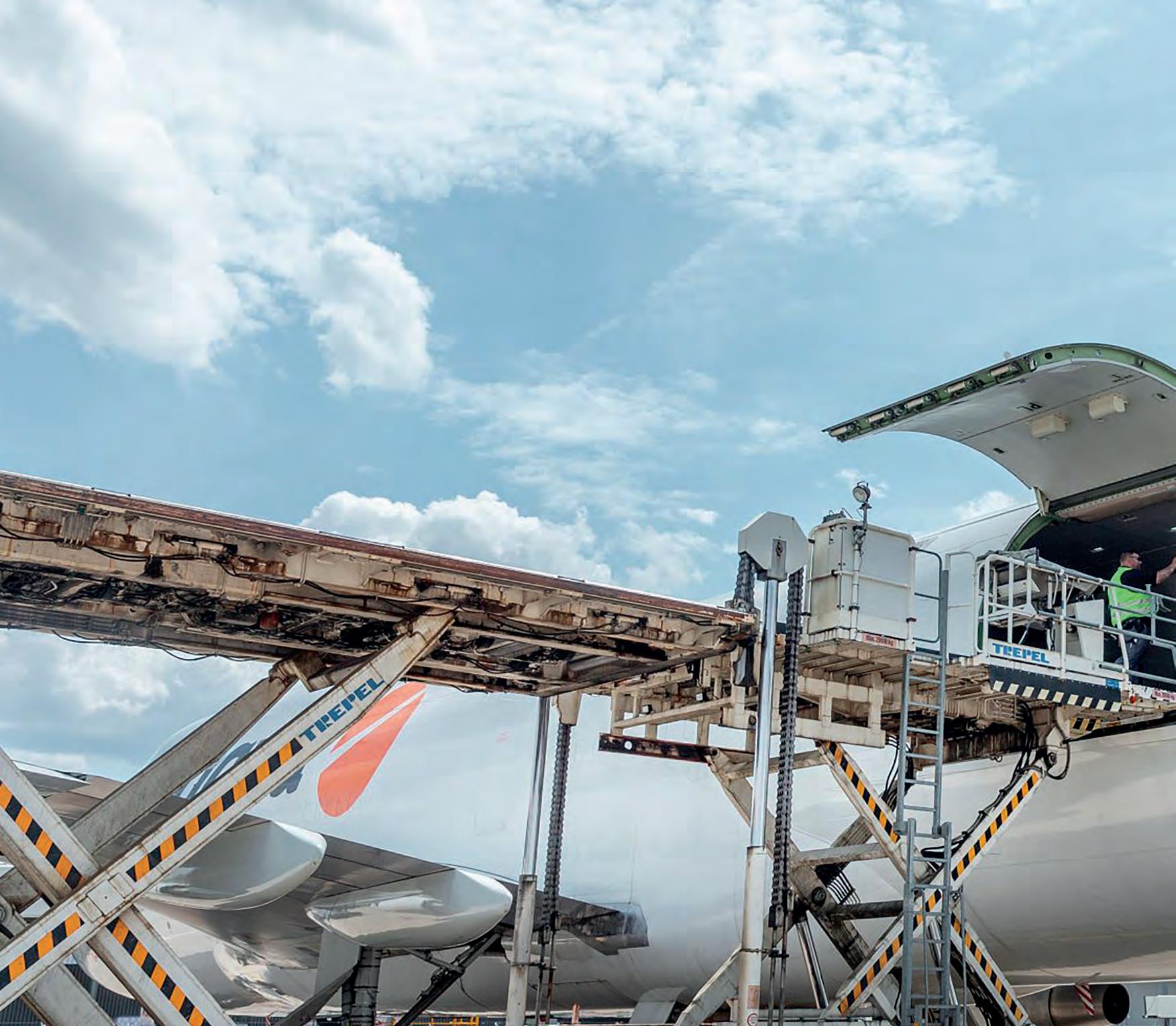
The company understood that relying solely on chartering would
become increasingly challenging due to industry advancements and changing customer preferences. By diversifying its services, Chapman Freeborn mitigated risks and balanced its revenue streams. The company is continuously exploring new niches and looking for ways to provide comprehensive solutions.
“We are always looking for opportunities to do business in niche areas,” Hunziker explained. “What we’ve tried to do is have a one-stop shop. That’s the secret to Chapman Freeborn’s success: finding that niche that other competitors aren’t able to offer.”
With this offering and its range of regional CEOs, Chapman Freeborn has built a global reach that has made it the player it is today. By empowering dedicated regional teams, the company has achieved faster progress in certain countries, adapting more effectively to diverse cultures, mentalities, and market conditions.
“There’s more ownership and more dedication,” Hunziker said. “Previously, we were managing the world from London and Frankfurt, so we are making good progress. After just six months, it’s clear it was the right thing to do.”
Benefiting from its knowledge, Chapman Freeborn sees potential for growth and expansion in various markets. While Europe remains a focal point, the company acknowledges the need to strengthen its presence in underserved regions such as Africa and Latin America. With a dedicated team of experts and a focus on adaptability, Chapman Freeborn aims to seize opportunities in these markets and cater to the evolving demands of customers.
“Industries are shifting and the verticals are shifting,” Hunziker stated. “We still have some markets to reach, for example, Africa will be an important area in the future.”
“We started as a charter company but the world changed, the environment changed, and technology changed”
Demand patterns in the airfreight industry fluctuate in response to economic conditions. Chapman Freeborn recognises the correlation between economic trends and charter demand. During economic upturns, charter services become more attractive, while economic downturns can significantly impact demand. To mitigate this risk, Chapman Freeborn’s diversified portfolio allows it to navigate through market fluctuations and balance its exposure across different sectors, reducing dependency on a single market segment.
“In the charter business, customers aren’t looking for a traditional carrier. It’s normally for the more specialised cargo, so they want to know they’re getting their money’s worth,” Hunziker explained. “They want to feel comfortable with a reliable partner. It’s not just flying from A to B, it really needs experts all around the world to react swiftly when needed.”
As customer expectations evolve, Chapman Freeborn strives to add value and differentiate itself from competitors. In an industry driven by modernisation and sustainability, the company emphasises the importance of offering enhanced value and sustainable solutions. It leverages digitalisation and encourages out-of-the-box thinking to improve operational efficiency and meet the evolving needs of customers.
“These are the sorts of areas of evolution in the industry that customers look for,” Hunziker said. “It’s vital to add value and that’s what I’m telling our team every day. The key is thinking out of the box and using new technology.”
The emergence of digital charter brokers has created new challenges and opportunities for traditional charter brokers like Chapman Freeborn. While the charter business faces increasing pressure due to airline flexibility and customer demands for cost-effectiveness, Chapman Freeborn’s emphasis on value-added services, expertise, and global reach sets it apart.
“Everybody wants to save money. Everybody wants to increase profits,” Hunziker highlighted, explaining how that’s where new steps to minimise expenses and streamline operations come into play. That’s why the company understands that adaptability and continuous evolution are essential to staying competitive in the digital era.
As Chapman Freeborn celebrates its 50th anniversary, the company remains focused on the future. In the short term, it plans to expand its services in Europe, continuing to capitalise on new opportunities within the regional market.
“Hopefully we’ll be celebrating another 50 years,” Hunziker said, pointing to how Chapman Freeborn aims to further develop its cargo capacity management department, which ha s shown promising growth since its inception, helping the company to stay agile and provide valuable solutions to its global clientele.
“We started with two people in Europe. We’re now at 15. We’re looking forward to further expansion and embracing new opportunities,” Hunziker stated.
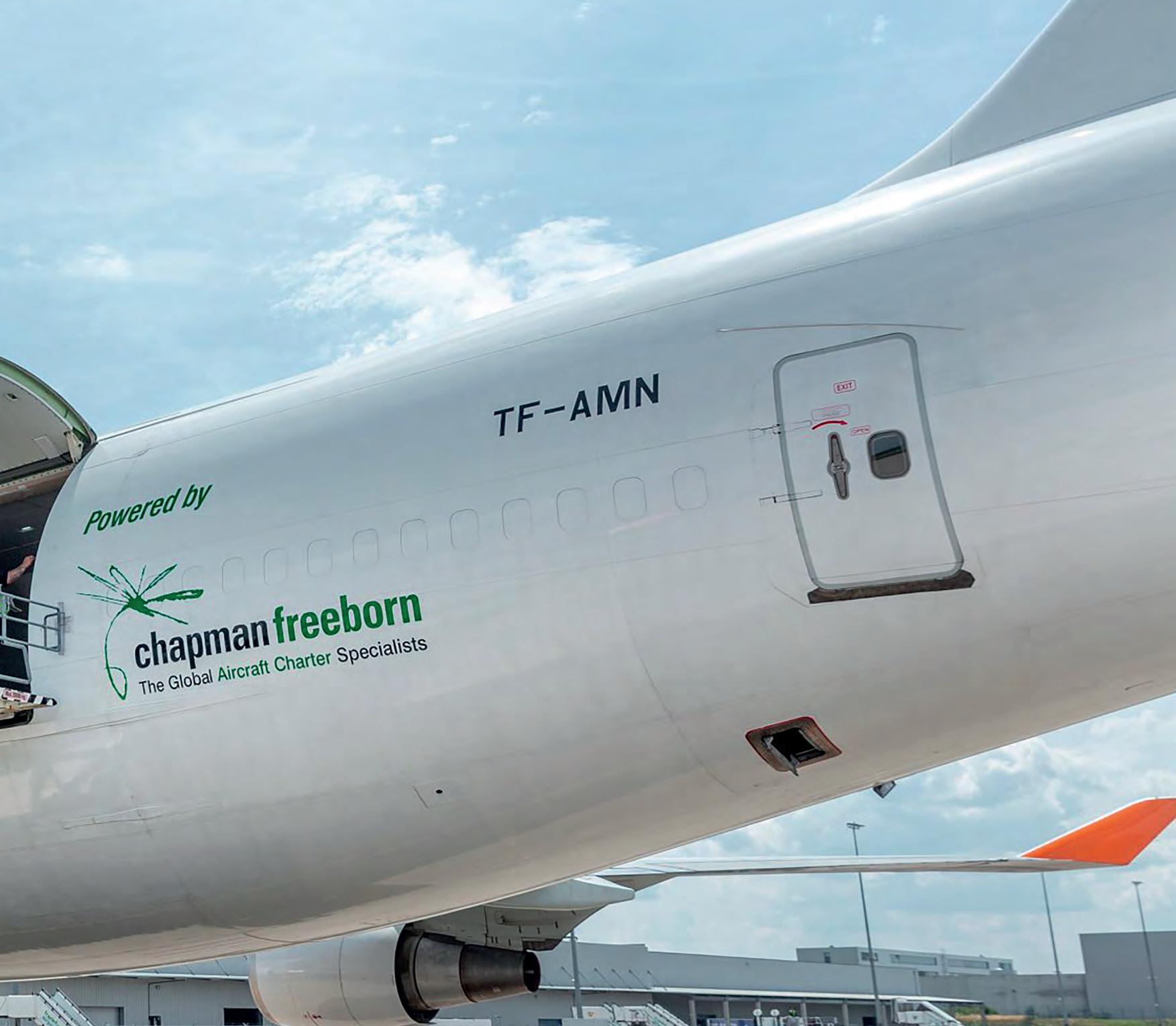
“Everybody wants to save money. Everybody wants to increase profits”
HAE Group, a prominent GSSA in the airfreight industry, proudly traces its roots back to the United Kingdom. Established in 1997 at East Midlands Airport, HAE began as a purchaser of fixed capacity and has since grown to become a global player with operations in various countries.

While HAE Group now operates in key regions worldwide, including the Americas, Ireland, Italy, the Middle East, Africa, and China, the UK remains a vital market for the company, serving as its headquarters. “It’s where it all began and it’s still HQ,” Richard Thackeray, COO of HAE Group, said.
In the UK, HAE Aircraft & Cargo Handling provides a range of services. The company operates as a licensed ground handler, with warehouse operations at Belfast International Airport and a dedicated Cargo Handling and Operations company at East Midlands Airport.
At Belfast International Airport, HAE offers fullservice handling for airlines, freight forwarders, express, e-commerce, and domestic parcel carriers.
At East Midlands Airport, the focus is on specialist e-commerce and domestic parcel cargo handling, including customs brokerage.
“HAE is a full service GSA being able to offer CSA, GSA, TCM and even BPO services to the industry, we have a variety of contracts we perform for clients with combinations of field sales, inside sales, marketing, bookings, operations, customer service, finance using our IT systems,” Thackeray highlighted.
While the role of GSA has evolved amidst market disruptions, HAE Group recognises the continued importance of “boots on the ground”. Local market knowledge and personalised service remain crucial in serving airline partners and clients.
“Strong, professional airline relationships and a track record of being entrepreneurial have meant many long term airline partners have asked us to expand our network to mutual benefit,” he stated.
Operating in the UK market presents both challenges and opportunities for HAE Group. Declining yields and rising costs pose significant hurdles, particularly on traditional routes with limited cargo demand. “However, the challenge is also an opportunity to embrace technology and bring some new thinking to our marketplace,” Thackeray was swift to add.
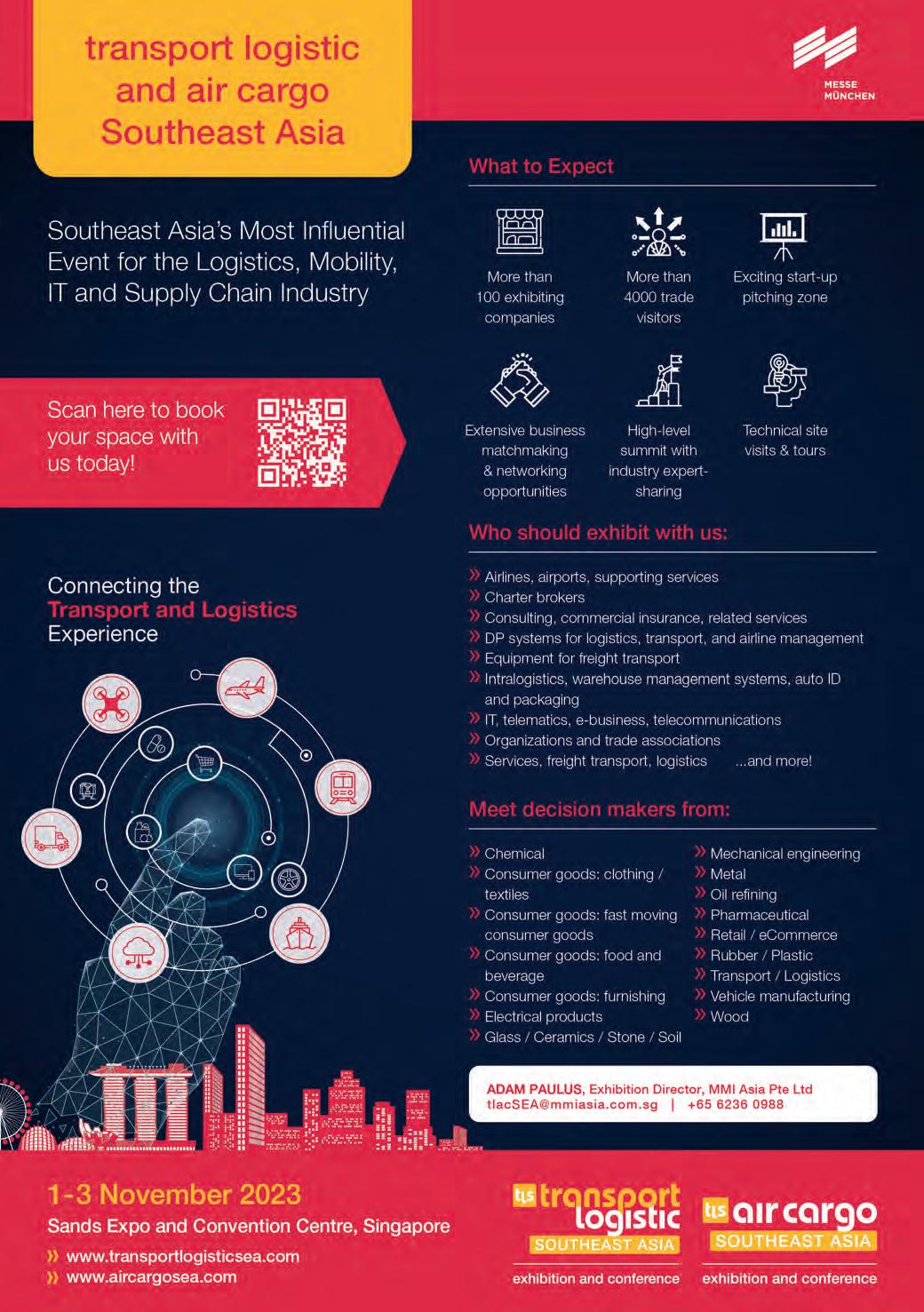
HAE Group sees the worldwide market and the diversification of commodities as significant opportunities. “This means opportunities are there you just need to be innovative, solutions driven for your customers and engage with your carrier partners,” Thackeray explained.
While the current economic cycle presents its difficulties, the company remains optimistic about the future, driven by their commitment to excellence, adaptability, and embracing new thinking. “We are in a tough part of the economic cycle and we look forward to a stronger second half of the year,” Thackeray said.